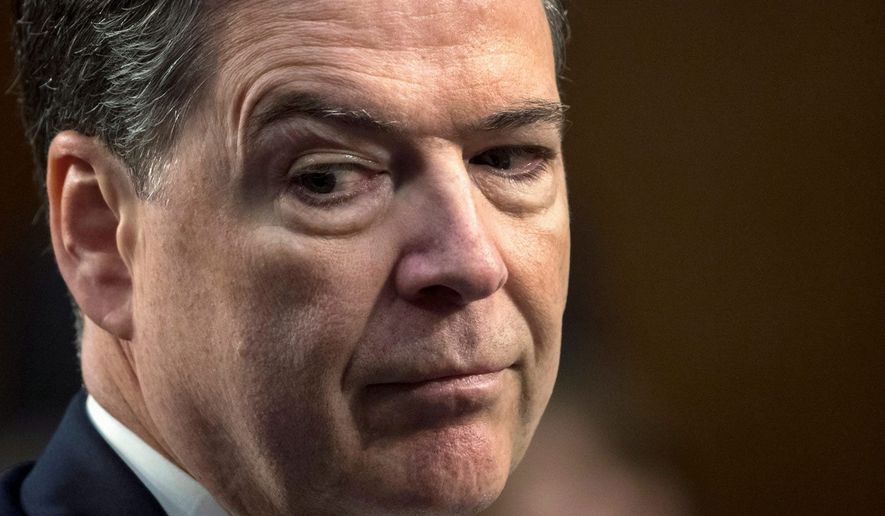A top Republican senator said Wednesday that it appears former FBI Director James B. Comey leaked classified information in his effort to shape the narrative surrounding President Trump’s decision to fire him.
Senate Judiciary Committee Chairman Charles E. Grassley said Mr. Comey wrote seven memos, and shared four of them with a professor he was using as an intermediary to defend him. Of the seven, four are marked at the confidential or secret level — meaning at least one of the memos Mr. Comey shared contained restricted information.
Mr. Grassley now wants to know when and how the memos were deemed classified, and what that might mean for Mr. Comey.
The Iowa Republican fired off a letter to Deputy Attorney General Rod Rosenstein demanding answers.
“Has there been any review of whether the disclosure of the memoranda by Mr. Comey was otherwise improper, such as whether it violated his employment agreement or any Department rule or policy? If so, what is the status of the review? If not, why not?” Mr. Grassley wrote.
He said he’s personally reviewed the seven memos, but was forced to do so in a Sensitive Compartmented Information Facility, or SCIF.
“The FBI insisted that these reviews take place in a SCIF because the majority of the memos are classified,” he said. “FBI personnel refused to answer factual questions during the document reviews, including questions about the chain of custody of the documents I was reviewing, the date that they were marked classified, and who marked them as classified.”
Mr. Comey has said he gave copies of memos to Daniel Richman, a law professor at Columbia University, who then shared information from them with the New York Times.
Mr. Richman refused to give the memos to Mr. Grassley’s committee, but said he turned them over to the special counsel’s office and the FBI, which has now provided the limited access to Mr. Grassley. At least one of the memos had information now marked at the “secret” level, which is above “confidential” but below “top secret.”
“The Justice Department should know which memos were provided and be able to share that information with the committee,” Mr. Grassley wrote.
Mr. Comey, during the probe into former Secretary of State Hillary Clinton’s emails, said information can be classified even if it isn’t properly marked as such at the time.
He cleared Mrs. Clinton of criminal wrongdoing, saying that while she was reckless, she was too technologically incompetent to understand the risks she was running with the information.
A number of press outlets have sued the FBI demanding the Comey memos be released. The government says release would hinder the ongoing special counsel probe into Russian interference in the 2016 U.S. elections.
Mr. Comey said he wrote the memos after interactions with Mr. Trump, saying he found the president’s behavior to be so troubling he needed to memorialize it.
• Stephen Dinan can be reached at sdinan@washingtontimes.com.




Please read our comment policy before commenting.